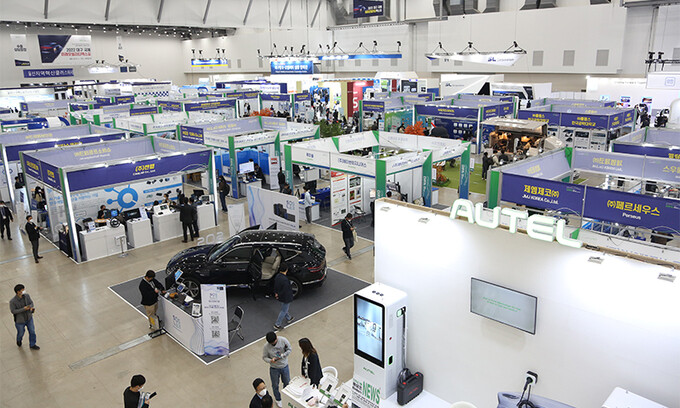
Daegu, South Korea – The Daegu Metropolitan City has announced a call for applications from companies to participate in its Future Mobility Leading Technology Development Project. This initiative aims to foster innovation and commercialization in the burgeoning field of future mobility within the region.
Eligible applicants include small and medium-sized enterprises (SMEs) with their headquarters or a business establishment located in Daegu. Interested companies can submit their applications through the website of the Daegu Machinery Parts Institute (www.dmi.re.kr) until May 12th. Following a thorough evaluation process, the city is expected to announce the selected participating companies in June.
The project encompasses two main categories for funding: three "Core Business" projects focused on supporting local companies' research and development (R&D) and commercialization efforts in future mobility, and one "Institution-Region Cooperation Project" designed to facilitate collaborative R&D endeavors between local research institutions and businesses. The targeted support areas encompass the development of core technologies in future mobility sectors such as electric vehicles (EVs), hydrogen fuel cell vehicles (FCVs), autonomous driving, and urban air mobility (UAM).
Starting this year, the three-stage Future Mobility Leading Technology Development Project will transition to an annual project cycle, with a stronger emphasis on R&D outcomes. Projects demonstrating outstanding results will be eligible for a fast-track system, granting them preferential treatment in evaluations and potential opportunities for continued support in subsequent years.
Daegu City has been actively promoting this project since 2016, and it has yielded significant results to date, including KRW 127.7 billion in commercialization revenue, the creation of 275 new jobs, and the acquisition of 144 intellectual property rights. Recent success stories include Shinseong Hitech Co., Ltd. and Songma DMC Co., Ltd.
Shinseong Hitech achieved direct sales of KRW 300 million during their project period through the development of eco-friendly lightweight motor housings and signed an investment agreement for a national industrial complex last year. Songma DMC secured orders worth KRW 6 billion through the development of an artificial intelligence-based aluminum frame for electric vehicles and anticipates additional orders of up to KRW 12 billion by next year.
Further Information on Daegu's Future Mobility Initiatives:
Daegu has been strategically positioning itself as a hub for future mobility innovation. Beyond this specific funding project, the city has been actively involved in establishing infrastructure and fostering a supportive ecosystem for related industries. This includes:
Investment in Infrastructure: Daegu has been investing in charging infrastructure for EVs and exploring the development of hydrogen refueling stations to support the adoption of clean vehicles. Plans for UAM infrastructure, such as vertiports, are also likely in early stages of consideration.
Research and Development Ecosystem: The presence of the Daegu Machinery Parts Institute (DMI) highlights the region's commitment to supporting R&D in the automotive and related sectors. Collaboration between DMI and local universities further strengthens the innovation ecosystem.
Policy Support: The city government has likely implemented various policies and incentives to attract investment and support the growth of future mobility companies within the region. These could include tax breaks, subsidies, and streamlined regulatory processes.
Industry Clusters: Daegu has a strong manufacturing base, particularly in automotive components. The Future Mobility Leading Technology Development Project aims to leverage this existing strength and transition local businesses towards the future of transportation. The success stories of Shinseong Hitech and Songma DMC demonstrate this ongoing transformation.
Focus on Key Technologies: The identified focus areas of EVs, FCVs, autonomous driving, and UAM align with global trends in the future of mobility. By strategically investing in these areas, Daegu aims to secure a competitive edge in the industry.
This latest call for applications underscores Daegu's proactive approach to nurturing technological advancements and fostering the growth of future mobility industries within the region, contributing to both economic development and technological leadership.
[Copyright (c) Global Economic Times. All Rights Reserved.]



























